When those who preferred compromise to war passed away, there remained those men of principle who preferred war to compromise.
Stephens had two brushes with the presidency. At one time the Little Giant of Illinois, Stephen Douglas, toyed with asking Stephens to be a vice-presidential running mate. Later the Secession Convention in Montgomery Alabama selected him to be Vice-President of the Confederate States. Indeed, he had even been mentioned as a president in the first days at Montgomery before Davis emerged as the preferred candidate.
Alexander Stephens (1812-1883), after a career in law, was a state legislator and member of the United States House of Representatives, where he was embroiled in the collapse of the Missouri Compromise, the Compromise of 1850, the Kansas Jayhawk War, the continuous crises that led to the Civil War.
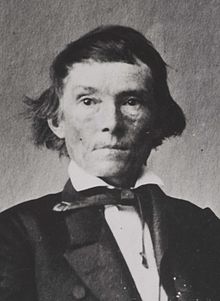 Stephens in 1855
Stephens in 1855
In his own mind Stephens was a pillar of virtue, a man of unblemished rectitude, absolutely consistent and forthright, unwavering, and never mistaken. He was also pivotal and influential in all matters he touched. That is his own opinion. He had no self-knowledge, it seems.
Schott shows in this well researched and nicely written book that Stephens was inconsistent, illogical, marginal, and often ignored. That Douglas briefly considered him as a running mate indicated how desperate Douglas was to hold together the Democrats as national party, spanning North and South, and how few Southern moderates there were that he might recruit. That he became Vice-President of the Confederate States is because more important players had contempt for this ‘empty compliment.’ Like most vice-presidents, Stephens found there was little for him to do.

Stephens was barely 5’ 2” tall and never weighed more than 100 pounds. He suffered ill health all of his days, and was often incapacitated for months at a time. He spoke in a shrill and high-pitched voice. Nor was he favoured by appearance. In today’s media he would never make it in politics.
He was a prodigious letter writer, and a finder of legal loopholes that made his legal career, an autodidact, who was as pompous as he was short. He had the intellectual vanity of a PhD.
When Jefferson Davis arrived in Montgomery to accept the presidency, he and Stephens met frequently. In those days, just as the assault of Fort Sumter occurred, Davis proposed a three-man commission North to negotiate a peaceful secession and asked Stephens to head it. Stephens declined because of ill health, he said at the time, and because, he added in hindsight years later, he saw no chance of success. Outliving many rivals, Stephens added much hindsight to his record; the the author does a good job of evaluating that hindsight against reality, seldom to Stephens’s credit.
While Davis and others argued that secession was a right to reconstitute a government, unconsciously aping John Locke, Stephens, ever in love with the sound of his own voice, delivered a paean on the divine justice of black slavery in his infamous Cornerstone Speech. That speech, widely reported and reprinted, lit a fire in the abolitionists of the North; even if Abraham Lincoln had been inclined to entertain the Davis peace commission that speech made it impossible. Stephens, the Vice-President of the Confederate States said that the purpose of secession was to defend slavery! He said further that it was a God-given right to enslave others. Moreover, that speech registered with the European powers Davis had been trying to convince to support the Confederate cause.
The author implies that Stephens’s speech was not intended to set a policy, but simply that when he started talking and mentioned slavery, the audience cheered, so he laid it on to milk more cheers from the audience. The author leaves little doubt that Stephens often talked without thinking. Before the death tolls mounted crowds North and South cheered all manner of claptrap. Don’t know what ‘claptrap’ is. Think Tea Party. Got it? Got it!
The Montgomery convention established a provisional government on the condition that the president be elected in one year. The critics of Jefferson Davis were legion. Some things never change and every newspaper editor in the South knew better than Davis how to conduct the government and wage a war, and said so often and in 30-point type. Even so, there were no other candidates; Davis (and with him Stephens) were re-elected unanimously. I cannot find out any more about this election from Wikipedia. There seems to have a popular vote of some kind and an electoral college vote.
What a utopia it would be if we were governed by the philosopher-journalists of the media who know everything.
He and Davis were much alike in their overweening egotism and thin skin, and when the government moved to Richmond, Davis no longer consulted Stephens. Accordingly, Stephens went home and spent most of the war in Georgia, and Georgia contributed as little to the war as possible.
Some historians say that Georgia made war on the Confederate government in the name of states’ rights. Georgia withheld men and material from the Richmond government on a significant scale. It stymied efforts to raise money with Georgia cotton and refused to cooperate with the Confederate Navy’s efforts to run the Union blockade, all in the name of states’ rights. Georgia Governor Joseph Brown won over Stephens with transparent and superficial flattery who then joined him in attacking his own government. Stephens could see no inconsistency in this behaviour. He never considered resigning, but continued to enjoy the status of being ‘Mr. Vice-President’ while disloyally opposing that government he formally served.
The Northern press fastened onto to this show of disunity with glee. European diplomats took note of this disunity, too.
The Confederate Constitution followed that of the United States very closely. It differed, however, in giving cabinet secretaries a seat of the House of Representatives where they would be subject to scrutiny. Schott accepts without examination Stephens’s claim to making this innovation, but the balance of evidence gives that honour to Judah Benjamin, the Attorney-General. (Benjamin had seen this practice in his travels to England.) In the event it seems not to have had any impact and it did not last since most cabinet secretaries stayed as far away from Jefferson Davis as possible by leaving Richmond.
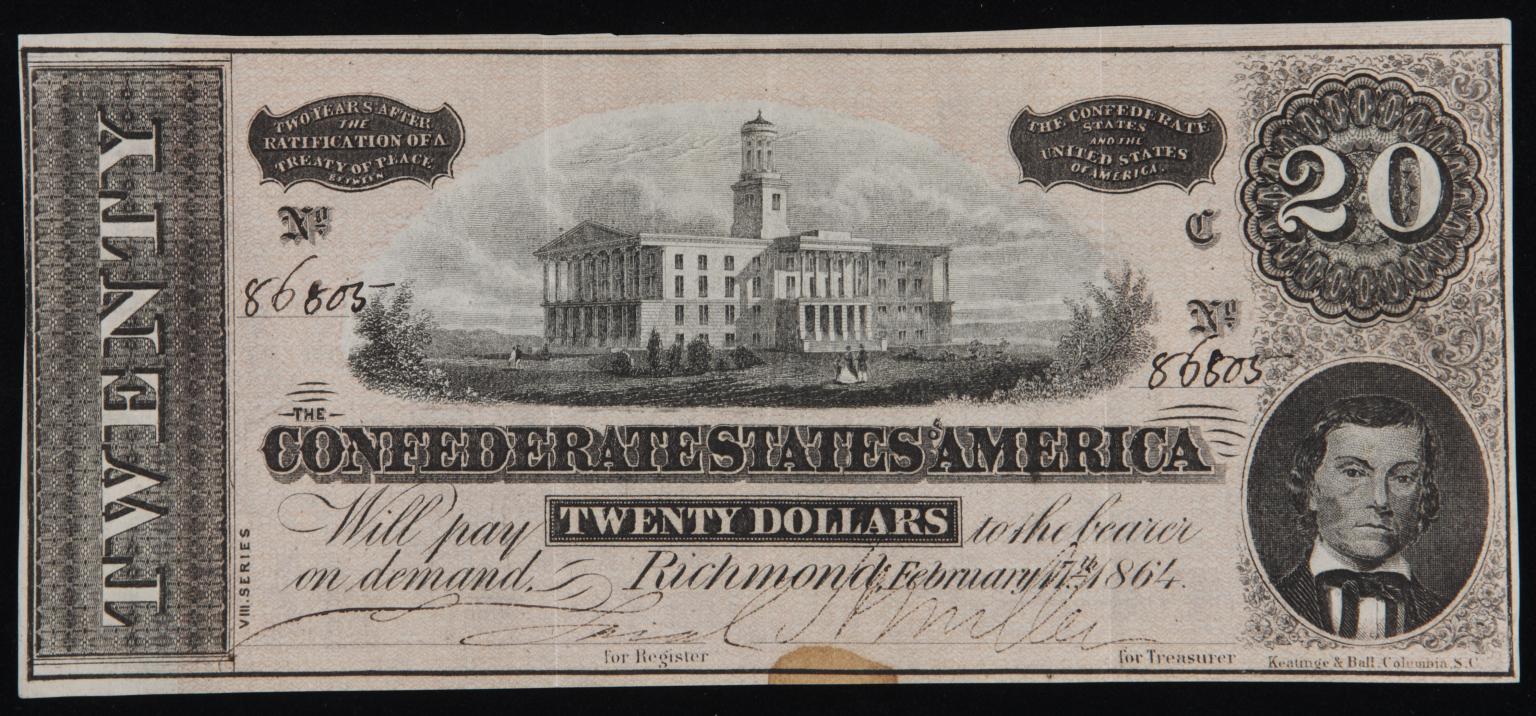 Stephens on the Confederate $20 note which in 1964 would have bought a toothpick. The Confederate government printed about $1 billion dollars in notes, and most of the Southern states also issued their own script, then there were the bonds. In addition to inflation at the time, another result is that they have little value to collectors because there are so many of them. (Readers may remember that in the 1950s the judge in Carson McCullers’s ‘Clock without Hands’ had a stash of these notes which he proposed to put back into circulation to solve the economic problems of the day.)
Stephens on the Confederate $20 note which in 1964 would have bought a toothpick. The Confederate government printed about $1 billion dollars in notes, and most of the Southern states also issued their own script, then there were the bonds. In addition to inflation at the time, another result is that they have little value to collectors because there are so many of them. (Readers may remember that in the 1950s the judge in Carson McCullers’s ‘Clock without Hands’ had a stash of these notes which he proposed to put back into circulation to solve the economic problems of the day.)
Stephens never married and women are rarely mentioned in his extensive correspondence. He would say that he gave himself wholly to his country as a patriot. Did I say ‘pompous’?
While he fancied himself the only Christian gentlemen the country he did not attend church, though he read the Scriptures, and none of his opponents ever threw that in his face on the stump. Odd that. But he was not alone, e.g., Andrew Jackson.
Stephens’s political career started as a Whig, as did Abraham Lincoln’s. They sat together in the Whig caucus in Congress. As the Whig Party collapsed, unable to span the regional divides of North and South and of East and West, Lincoln became the second Republican presidential candidate, while Stephens sided for a time with Stephen Douglas as a Democrat. Class! Who was the first Republican nominee?
A pedant? His first election to the United States House of Representatives was as a member at large from Georgia, which had not yet been divided into Congressional distracts, because its western border was not surveyed. In his first speech in Washington D. C. he declared his own election invalid since the Constitution expressly required Congressional Representatives to be elected by districts of nearly equal size. He was satisfied with the startling effect on the few who heard it and did not act on his own contention, say, by resigning. By the way, the districts were surveyed and in two years he was re-elected from a district.
At the end of the Civil War Stephens was arrested and jailed for four months, the first two were pretty hard but the last two were lax. After his release he was a United States Senators-elect from Georgia but since he had not taken the loyalty oath, he was not allowed to take his seat. Later, after taking the oath, he was elected to the United States House of Representatives for ten (10) years where he served without distinction, and then briefly – less than a year – governor of Georgia.
In this post-bellum years Stephens proved (to his own satisfaction) that he had never erred, that he had opposed slavery, that he upheld the United States Constitution, that he had the right war policy, and more. His capacity for self-delusion had no bounds. That old adage about a person being promoted one level about the level of competence came to mind in his case. In the confusion of wartime, his promotion was several levels above his competence.
The book is meticulously researched and written with a light hand. It gives credit where credit is due to Stephens, e.g., he did visit wounded soldiers in Richmond hospitals now and again, something that Jefferson Davis could never bring himself to do because he thought it was inconsistent with the dignity of his office. After all, one of those hill-billy soldiers might not address him as ‘Your Excellency’, which the only form of address he found suitable for his high station! The book also points out Stephens’s volatility, repeated mistakes, lies, and more.
My one complaint though is that the there is no terminal chapter with a final, overview assessment of Stephens after readers have forced-marched through 520 pages of detail. A bigger picture at the end might give that details some added meaning. Without that picture a lot of that details seems, well, detail for the sake of detail.
A ticket of Douglas and Stephens would have give the wits something to talk about, for example, the Leprechaun ticket or the garden gnome slate at 5’ 6” and 5’ 2” respectively.
Author: Michael W Jackson
De Gaulle: The Ruler 1945-1970 (1985) by Jean Lacouture.
The story goes on, and gets even stranger. Although de Gaulle was wildly popular in France at the Liberation, the restoration of political parties, particularly the Communist Party which was taking orders from Moscow, made political life unpalatable to de Gaulle. This Fourth Republic from 1945 to 1958 was a replay of the Third Republic, divided, carping, jealous, each undermining the other for momentary advantage, negative, inward looking, oops starting to sound like Canberra. All this began while the Germans still occupied ten percent of the country. The parliamentarians had forgotten nothing and learned nothing.
Colonel Trinquier, one the leaders
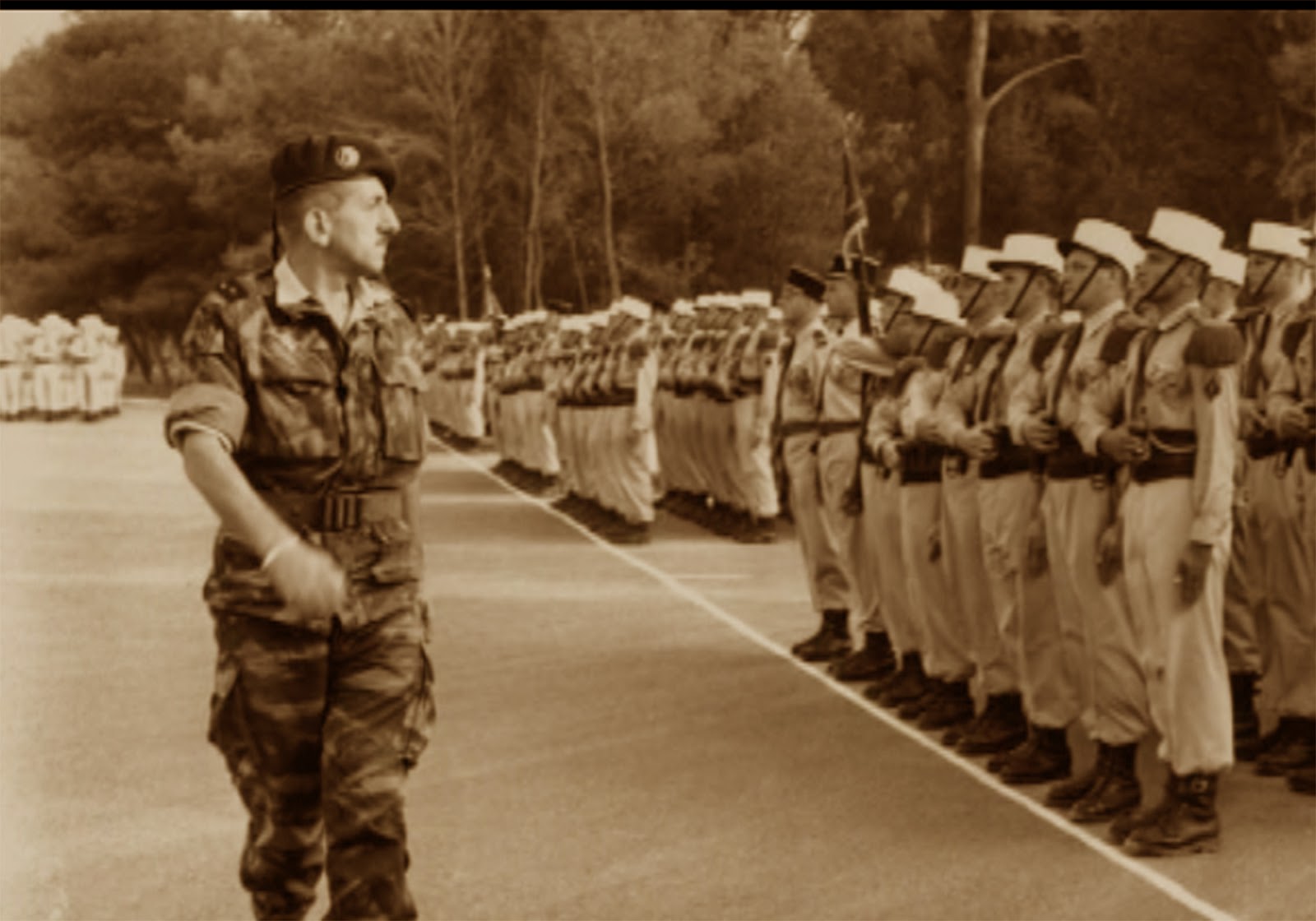 General Massu and his paratroops, a pivotal actor
General Massu and his paratroops, a pivotal actor
Many of these ’wolves in the city’ (a reference to Paul Henissart’s book of that name) knew de Gaulle personally but they did not seem to know him at all. He had been on record since 1943 for self-determination in Algeria, yet they thought he would re-impose French domination there. By the way, there is plenty of evidence that a coup d’état was likely. Two regiments of paratroopers from Algeria were emplaned for Paris, and another regiment deemed loyal to the plotters was assembled in the Bois de Boulonge on the designated day. Tense!
Historians make careers in speculating about de Gaulle’s role in this plot. Lacouture concludes that he knew something as drastic as this was in the offing, and probably thought it would take such a dire threat to bring parliament to its senses, so he remained mute, allowing the plotters to think he was with them. That rare quality in a politician is the ability to keep quiet and say nothing, and de Gaulle had that.
The call was made and de Gaulle was sworn in as prime minister, that cooled the plotters who relented, standing down the paratroopers in Algeria, though there is an amusing story that two police officer riding bicycles through the pre-dawn Bois coming upon a regiment of a thousand fully armed paratroopers very early in the morning and ordering them to disperse, which they, lacking any further orders, did! Now that is civilian authority.
De Gaulle proposed the Constitution for the Fifth Republic which gave a president great powers and took that office by an indirect election. An indirect election? Political Science students know what that means but most punters do not. It means, in this case, that 80,000 office holders (municipal councillors, mayors, parliamentarians, and members of the judiciary were the electorate in this first presidential election under the Fifth Republic. They gave de Gaulle a two-thirds majority against a field of six other candidates, including the inevitable Communist. In the subsequent parliamentary elections it was another two-thirds for the supporters of de Gaulle, though by this time there were two Gaullist parties. The Communist Party nearly disappeared in this election, going from 120 seats to 10. Such indirect elections were the norm in the 19th Century well into the 20th Century.
De Gaulle remained faithful to his belief that circumstances determine all, and on Algeria he stalled, delayed, spoke in enigmatic phrases, while wooing first Algerian nationalists and then moderate generals in his own army, now and again offering a dissident general a plum appointment abroad as ambassador, promising others new commands if only the crisis could be resolved, coaxed parliament to defer to him, and took his time. During all of this he came to realize himself that there was no alternative but complete independence, though he had long preferred a more gradual option that retained a filial link, and finally he said so.
Then there was a coup d’êtat attempt, but by this time the plotters were too weak, too divided, the government too strong, the Algerian nationalists too disciplined, and having anticipated this, de Gaulle out manoeuvred them.
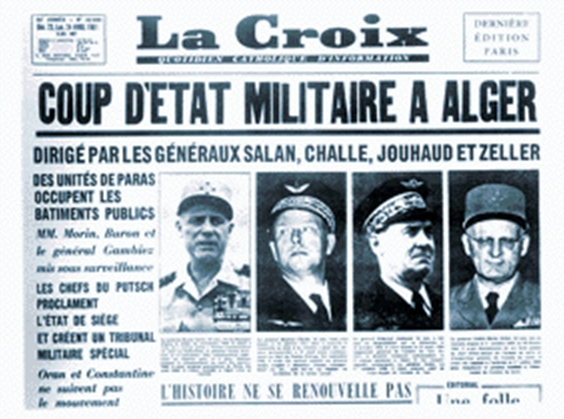
That led a fruitless and bloody civil war between the Organisation de l’Armée Secrète (OAS) – the ultras – and France, which was just as merciless and bloody as the repression in Algeria had been. None of this story is pleasant, but in the end a worse result, which was very likely at several stages, was averted and de Gaulle, love him or hate, must be credited with that. No one else could have done it.
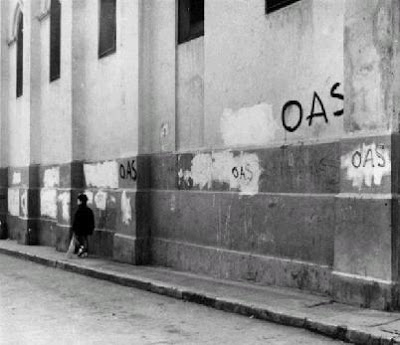
Nor was any of it easy. Men who had been close to him for years turned against him. Others tried to kill him, several times; nothing he did satisfied the liberals, the nationalists, the Communists, the pied noirs of Algeria…. When he stalled and delayed lives were lost. It was a terrible time, and the OAS brought the war to Paris by bombing cafés. Yes, long before the IRA got around to blowing up customers drinking coffee, the OAS did it in Paris. It was all deadly serious. At the height of this struggle de Gaulle was seventy (70) years old. Reader what will you be doing at 70?
In 1965 he contested his only popular election and won 55% of the vote in the now familiar two-step process. He defeated François Mitterand.
Having learned how unreliable allies were in World War II, President de Gaulle hewed an independent line in foreign and defence policy. When England tried to prevent a European Union, De Gaulle committed himself to it as a third force between the Anglos and the Communists. Later when the United Kingdom wanted to join the European Union…. Likewise he wanted France to be a force to be reckoned with from now on, and that meant nuclear weapons, and developing these weapons could only be done outside NATO, so France left NATO.
Originally he wanted to occupy the east bank of Rhine, exact reparations from Germany, monopolise the coal from the Saar, and dismember Germany, if not quite as ruthlessly as Clemenceau proposed in 1918, but de Gaulle changed his mind. He originally wanted to manage the movement to independence of colonies, but he changed his mind. He originally opposed a European Union, but he changed his mind.
Instead of reducing Germany, de Gaulle led the way in bilateral relations with West Germany. In one remarkable instance he gave a speech in German at a factory in the Ruhr in which he challenged his auditors to do something very hard, very unlikely, never been done before, virtually impossible…to live together in peace! I did once find it on a web site but I have since lost the address.
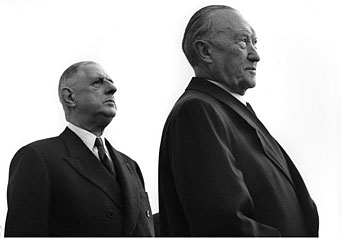 de Gaulle with Konrad Adenhauer
de Gaulle with Konrad Adenhauer
It is a common mistake that I have read in that self-important organ of opinion the Sydney Morning Herald more than once and heard on the ABC pulpit more than once that the demonstrations of May 1968 drove de Gaulle from office. In fact he left office in 1969, as always in his own time and in his own way. But what is a year to a journalist? Just another annoying fact, or so I was told by a Fairfax journalist when I pointed out this mistake.
In fact in the elections de Gaulle called after those demonstrations in June 1968 returned 352 Gaullist out of 487 seats in parliament. A resounding victory! In fact he resigned in April 1969, when he was seventy-nine (79), after the defeat of a referendum he sponsored on the reform of local government. He was ready to leave and the referendum was a convenient trigger. He died within a year.
A few loose ends. De Gaulle assigned the earnings from his memoirs and other books to the Anne de Gaulle Foundation that he and Yvonne started. The Foundation supported mongoloid children and their parents. The pygmies of the press give this gesture no publicity.
While head of the provisional government, prime minister, and president de Gaulle paid his own way. That is he charged almost nothing to the state. He paid for his own telephone calls. He had meters installed in the living quarters so he paid for the heat, water, and light there. Paid for his own postage stamps. We know this from biographers. He lived on his pension as a colonel; his promotion to general had not been confirmed by the Reynaud government during its flight and so was never technically consummated leaving him entitled to a colonel’s pension which he accepted without demure. Nothing was said about it at the time. I am not sure what conclusion to draw from his frugality except, as always, that he did things his way.
In the preface to this translation the author complains that the publisher abridged volumes two and three into a single tome. The original French three volumes were squeezed into two by combing the last two in one with much editing. It is not clear who did the editing. Was it the translator or the author himself? What I can say is that I found the blow-by-blow account of the political machinations from 1946 to 1969 is far more than I could digest in even this abridged form. What that detail does do is show how hard the work of politics is.
What I missed, and I do not know if it is there in the original, is detail of de Gaulle’s years in the wilderness. After all it was twelve years. He gave some speeches in the early years and he wrote his memoirs, yes, but what else? Did he reassemble his family? Did he go to his grandchildren’s christenings? Did he read a biography of Jean d’Arc? She by the way seems to me to be his alter ego. Whereas she heard God, he heard France.
Since his passing many politicians, parliamentarians, parties, and movements in France have said they are Gaullist. What does that mean, ‘Gaullism’? First, it means an independent foreign policy and that implies having the means to be independent. Second, it means planning and co-ordination in domestic policy. In economics it means Keynesianism. Finally, it means the expansion and defence of French language and culture along with social conservatism. In short, big government, big enough to please Gough Whitlam.
There is a plaque on the wall of a building in London at Carlton Gardens noting that De Gaule had an office there during the war. Virtually every word on this plaque is contentious. To Vichy he was not a general; his commission lapsed when he refused the order to surrender. When he set up an office in Carlton Gardens he was alone. The Committee came much later and by then de Gaulle’s headquarters had moved. Likewise, that well known term ‘Free French’ renders ‘France Libre’ which is much broader – Free France, not just some Frenchmen but the whole. Moreover, in 1943 when the Anglos were trying to displace de Gaulle they started using the term ‘Fighting French’ to undermine him. In 1940 there were no ‘forces’ with de Gaulle.
I long wondered about the 140,000 French troops evacuated from Dunkirk in May. Should de Gaulle have recruited them. He could not because they were transhipped from Dover to Bristol by train in a great hurry and shipped back to Bordeaux arriving just before the capitulation. At the time the ambition was to get them back into the war, since no one in England, least of all the French generals with the troops, anticipated a capitulation in June. It was Churchill who ordered the British to evacuate soldiers from Dunkirk without regard to uniform. Until he intervened the evacuation was limited to Brits. Thereafter, the evacuation included Brits, French, Belgians, and even some Poles who with the French.
Christopher Koch, ‘Highways to a War’ (1995)
The novel is a study of war photographers in South East Asia in the 1970s. The three principals are Jimmie Feng, Dmitri Volko, and Mike Langford; the last is the protagonist. Mike is from Tasmania and there is where I got this copy in 2014.
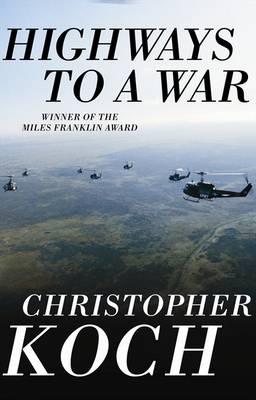
The descriptions of life and war in South East Asia are etched, and at times lyrical, the heat of the day, the bird song before sunup, the sapping humidity, the blinding sun, the people rooted to the land, the cool of the night,contrasted to the blare of American Saigon, the wumps of helicopters, the paralysing fear and chaos of a firefight, the confusion of battle, the mistrust of those people rooted to the land. It is all there in a kaleidoscope of sounds and colours. Much of the book can be read for a vicarious ride into the world of these war-lovers, as per the John Hersey novel.
The first experience of combat is terrifying. Enduring a B-52 bombing is unendurable. Volkov’s drunken lament is moving. The political theory seminar, complete with references to Hegel, in the jungle is compelling.
Mike is a Christ figure trying to save just about everyone and finding that he is all too human, too frail to do that. Indeed his unremitting inarticulate goodness wore down this reader. Even more tedious was his universal sex appeal; it read like an adolescent boy’s wet dream. Still worse was the recognition of his gift of grace in the early pages. The world does not work like that.
This reader was also worn down by 511 pages many of which were repetitious, first Vietnam and then Cambodia, each the same story told twice. Koch may have had to write it to exorcise his demons but I did not need to read it, and the second telling is lesser for my want of attention. Yes, I turned the pages ever faster.
 Christopher Koch
Christopher Koch
Niggles, there were a few, I do not know what a ‘Tasmanian bluey’ is and neither did the Tasmanians I asked. I have never seen it spelled ‘tzarist’ before and neither has the spell checker. The many references, including some in the Launceston setting at the start of the novel, to the Australian Broadcasting Service in the 1970s made me wonder where the ABC was. By the way, we never do get back to Launceston despite the elaborate setup. I also stopped short at a reference to blue eyes in old photograph of a great grandfather. Do the arithmetic and that great grandfather’s photograph must have been in black-and-white.
I chose this book because I have read other Koch novels and trusted him on two counts, to have a story to tell and to tell it well. He met both those criteria despite my niggles and plaints.
Jean Lacouture, ‘DeGaulle, The Rebel 1890-1944’ (1984)
When people hear that I am reading about Le Grand Charles most have a dismissive reaction as if to say ‘That fool!’ or worse. I get no such reaction to reading about Adolf Hitler or Erwin Rommel.
Does the memory of his veto of the United Kingdom’s bid to join the fledgling European Union still rankle? Does his icy reception of President Kennedy in Paris still itch? Does his determination to make France independent by (1) withdrawing from a NATO commanded by Americans and (2) developing nuclear weapons make him a villain?
That seems to be the superficial reaction. I say ‘superficial’ because I doubt any of these reactors know much of French history or his biography. This book offers a lot of both. As a foretaste of what follows, here are a few reasons by de Gaulle had no faith in the Anglos.
1.The British tried repeatedly to oust Free France from Syria and Lebanon when the Vichy Administration there collapsed.
2.The British colluded with the Americans for two years to displace de Gaulle with another, more pliable figure head. As to pliable see (5) and (6) below.
3.Whenever de Gaulle’s insistence that France was an Ally became too annoying the British would literally turn off his telephones, deny his vehicles petrol coupons, and end take-off and landing rights for the aircraft he used for transport in England and North Africa.
4.The Roosevelt Administration continued diplomatic relations with Vichy regime well into 1944, while that regime was busy deporting Jews to Germany.
5.Free France was excluded from all the planning of D-Day and the invasion of France in June 1944. ALL.
6.The American plan was to occupy France as though a belligerent and install military governors.
The list could go on but that is enough to indicate the sore points. To see some of the context read on.
When he decided to be a soldier, Charles de Gaulle grew up. His earlier dalliances with poetry and the life of letters fell away. His adolescent indolence and insouciance stopped from one day to the next. His indifferent school work suddenly became excellent. He is another example of Prince Hal or Achilles, a man born to the sword. Once committed to the Army, De Gaulle never looked back. He entered St. Cyr by examination and worked his way up from 150 in a class of 200 to 12. No one doubted that in another term he would be first. When he graduated he chose the infantry, unlike his peers who preferred engineering, artillery, or cavalry, each more glamourous than les poilus.
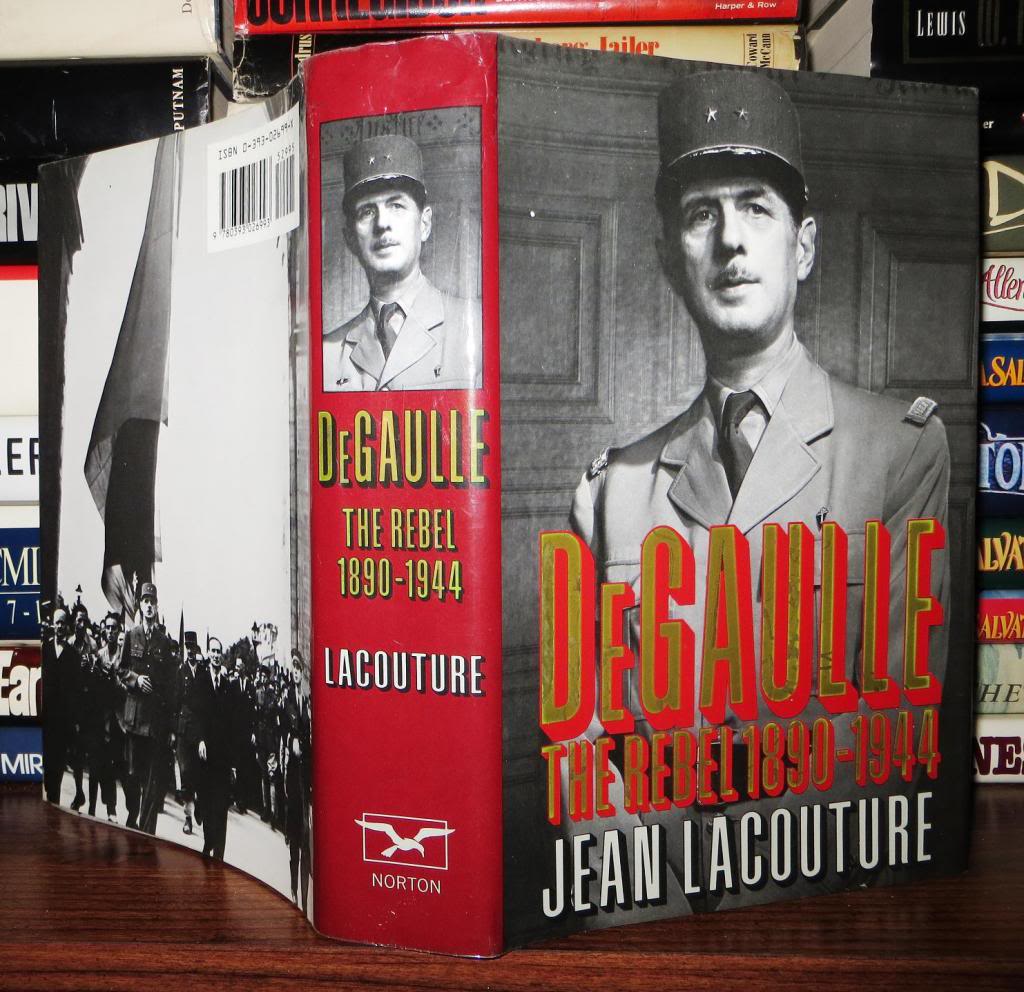
At 24 World War I started and de Gaulle was a captain at the front, shot in his first engagement. When his unit was transferred to the defence of Joan of Arc’s birthplace, sacred Verdun, he rejoined it there and served under the command of General Phillipe Pétain who praised young captain de Gaulle in dispatches. De Gaulle was bayoneted and captured, spending nearly three years as a POW in Germany. He had studied German since high school and he studied it again to aid his numerous, unsuccessful escape attempts.
In the long months of captivity he studied Germany and Germans in every way he could. He read the newspapers, spoke to and listened to the guards and the civilians who worked around the jail. He drew two conclusions from this study: (1) a civilian government mobilizes a country better than a military government because it is responsive to citizens and (2) Germans are resilient despite bad government.
For the moment stress the first, the primacy of civilian government. There is no doubt that de Gaulle, despite everything said about him by his many enemies, was a child of the French Republic and viewed it as the best form of government. He was never tempted by dictatorship of any kind under any name.
Wherever he went Charles de Gaulle had a mind of his own which he spoke. This characteristic slowed his progress up the army hierarchy but it also won him the support of Marechel Phillipe Pétain, such is the irony of history. Though he and Pétain were never close, Pétain made use of de Gaulle’s talents and protected him from some of the enemies de Gaulle made all too easily.
Prior to World War I the major debate in the French army was between the advocates of fortifications and those of firepower. Pétain took the side of fortifications and he found vindication in the killing fields of World War I. Firepower was so great it could not be overcome. Sheltering on the defensive in forts was the only solution. Out of this seed grew the Maginot Line.
De Gaulle drew a different conclusion, though he agreed that firepower was irresistible, his conclusion was maneuver, mobility, and movement. Hence his interest, even while a POW, in tanks.
After World War I the debate become more abstract. The received opinion in France was that war had to be managed through a series of doctrines that computed firepower, ratios, bullets per man,feet of cement walls, angles of fire, lines of wire, kilograms of steel in fortifications, ever more technical, mathematical, and abstract. A Cartesianism gone mad that René Descartes would not have recognised. Everything must be planned and calculated far in advance, then the army ants move like clockwork according to the plan, directed from afar by telephone and radio, observed from above by airplanes.
De Gaulle rejected this approach period, and said so in the first opportunity when he, then a junior officer, addressed a seminar of very senior officers who had all supped on doctrine. Rather he argued that it was circumstance, the unanticipated opportunities, that led to victory. These are first and best perceived at the lowest level of command, the sergeant, not in a manual of doctrine or at the end of a telephone wire in Paris. He advocated an army based on sergeants! At this rank the French Army should recruit educated and stable men, retain them with good pay and conditions, and train them (map reading, codes, signals) so that they could recognize opportunities and take initiatives. Hardly what the demigods of the École de Guerre saw as their mission. That Moltke the Elder, Napoléon, and Caesar could be quoted in support of this thesis helped not at all. Off de Gaulle went to distant posts in Poland, Germany, and Syria. Had World War II not intervened he would no doubt have been assigned to the French Antarctic Territory.
To make matter worse, de Gaulle wrote and published one book after another, each contrary to doctrine. By the way in this writing he earned a reputation as a stylist of the first order. To read ‘Le fil de l’épée’ (1927) is to see why. It is spare, terse, laconic, and elegant. It emphasised the human element in combat not the technical; it stressed the concrete not the abstract. It argued that the soldier wins the battle at the edge of a sword, not the general at the end of a telephone line. The general trains and motivates the soldier, and directs operations in broad.
Not only was de Gaulle a democrat of the French Republic, he was never anti-Semitic, not even in the casual way that was common in those days. There are many examples of this kind of anti-semitism that mar Georges Simenon’s Maigret novels of this time. Some of de Gaulle’s mentors in the army were Jews, and he always remembered them. Moreover, Léon Blum from his prison cell in Vichy declared de Gaulle to be the leader of France.
Then the war came, and de Gaulle was plucked from a desk and assigned to a field command of light tanks. Within days of arriving, he launched a reconnaissance in force and engaged the Germans with some success and took several hundred supermen prisoners. This is one of the few initiatives shown by any French officer during the Phony War (September 1939-May 1940). His superiors chided him for riling the Germans and relieved him of command! Gallic logic.
Then in May, German General Heinz Guderian struck with Erwin Rommel in the lead, proving that the Ardenne Forest was not impassable, which had been the assumption of the French General Staff, proving that massed tanks can destroy an enemy contrary to the doctrine of static defence.
De Gaulle, promoted to brigadier general, was assigned to command a makeshift brigade of French tanks. With this scratch force he launched the only French counter-offensive of the war to cut Guederian’s communication slowing the German advance. Like Churchill and Hitler, de Gaulle had been under fire in World War I, and, unlike them, he had also been under fire in World War II, several times at the edge of the sword.
By this time the chain of command was disintegrating. Premier Paul Reynaud asked him to join the government to balance the defeatist that surrounded him, e.g., Pétain, who had been advocating an armistice for days. Reynaud sent de Gaulle to London to motivate the English into making a still greater commitment to France.
Between 1932-1939 there were fourteen (14) minister of defence. Each busy undoing the work of his predecessor as the government lurched from one crisis to another.
That old chestnut that people unite against a common enemy is belied in this story.
Even as the Germans were flanking Paris in June 1940, Generals Maxim Weygand and Maurice Gameilin were undermining each other and writing letters to prove that the defeat had nothing to do with them. In one very embarrassing episode Weygand prowled the halls of the Ministry of War trying to get cabinet ministers and generals to sign a petition exonerating him of any responsibility. Comic opera, but for the gunfire.
Churchill was tempted to do more in France but he was surrounded by officers who told him France was lost and it was necessary to preserve British forces for the coming battle of Britain.
Then in a master stroke that has since faded from history, Churchill offered to unify France and Britain as a single nation, with a single government, and to defer to Reynaud as head of that government, if only the French would fight on in France or take the government into exile to London or Algiers. Reynaud was ready to accept the offer of union but his cabinet, by this time meeting in the Bordeaux town hall, was defeated, and rejected the offer in a few minutes. Better to make peace with the Germans than to enter into a covenant with perfidious Albion!
Like many others who emerge as leaders, the deeper the crisis became, the more disastrous the situation, the calmer, cooler de Gaulle became. At the last joint meeting of the Anglo-French War Council, Churchill described de Gaulle as imperturbable, relaxed, and yet alert and — most of all — with a plan….! The plan was a far-fetched (a redoubt across the Breton peninsula, but he was the only Frenchman at the table with positive action in mind, indeed, the only one to make eye contact with the English. The others stared down at the table top in silence. Beaten men, they were defeated. When Churchill passed de Gaulle leaving the room he paused and said to him ‘Vous êtes la France.’ Little did either of them know what was to come.
Though commissioned to ask what terms the Germans would offer, Prime Minister Pétain instead declared a unilateral ceasefire in his second day in office, and capitulated to the Germans with no effort to negotiate or permit the government to choose exile as the Dutch, Danes, and Norwegians had done in preceding weeks. Some say that Pétain’s actions were thus illegitimate.
In London two days after the capitulation de Gaulle went to the microphone in defiance of the obvious facts that France was lost; in defiance of the government of Pétain; in defiance of a great deal of public opinion in France that the war was over, and thank God for that! In defiance of the French community in London which wanted nothing so much as a low profile.
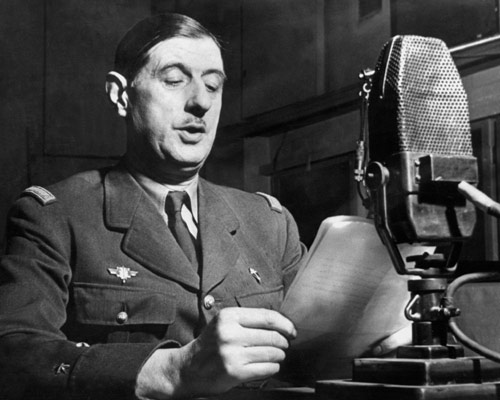 ‘France has lost a battle; the war goes on!’
‘France has lost a battle; the war goes on!’
There is much more to tell but it is best read. Instead of going into those details, let us take a look at the man himself. He married Yvonne, he said, because she had the best mind. He read most of his manuscripts to her, when possible, and accepted her judgement on style. His daughter Ann was born mongoloid and thereafter much of the family life revolved around her. There was never any question that she, Ann, would be secreted away in an institution though that was the common practice at the time. To the extent possible Ann would have an ordinary life with her siblings. His sons all carried arms in the Free French military.
 Anne de Gaulle, ‘Maintenant elle est comme les autres.’
Anne de Gaulle, ‘Maintenant elle est comme les autres.’
Second only to Yvonne was lifelong influence of his father and then his brothers. They were a close knit clan and stayed that way. The adverse publicity that Charles brought to the name of de Gaulle was worn as a badge of honour. By 1944 the Vichy Regime had rounded up all of his relatives and they were deported to German slave camps. That included his elder sister, cousins, nieces and nephews, and few of them survived the ordeal. Is it any wonder that later he refused any truck with the Vichy Regime, despite the insistence of President Franklin Roosevelt. Non!
De Gaulle, the rebel, has an impressive CV.
1.In 1912 a very junior lieutenant de Gaulle advocated mobility in a unit commanded by Pétain that singular proponent of fortifications.
2. In 1917 Captain de Gaulle lectured senior field officers on the stupidity of ‘attack at all costs’ against machine guns which many of them had ordered.
3.In 1924 Captain de Gaulle published articles in both popular and technical journals arguing that circumstance determines success, contrary to the French Army credo of doctrine. He is sent to Poland as an observer.
4.In 1927 he lectured future generals on the importance of sergeants in combat, not High Command.
5. In 1928 Captain de Gaulle refused to comply with General Pétain’s demands for intellectual flexibility. He is posted to Syria.
6.In 1934 Captain de Gaulle published a book opposing the doctrines of High Command predicting that the next war will be won by massed tanks supported by aircraft which will punch through any defensive (Maginot) line.
7.In 1937 he published yet another book disputing the doctrines of high command against the express wishes of Pétain.
8.In 1940 de Gaulle mailed a tract denouncing the conduct of the war to 80 superior officers.
9.Against orders to do nothing, Colonel De Gaulle launched his tank regiment on a reconnaissance in force against the German, netting 500 prisoners, and proving that French tanks can best Panzers.
10. On his own initiative in 1940 General de Gaulle launched the only counter-attack the French Army offered, briefly cutting Guderian’s line of communication.
11. In1940 in London General de Gaulle re-directed a French shipload of military equipment diverted to England.
Philippe Pétain rescinded de Gaulle’s promotion to General, put him on the army’s inactive list, retired him from the army, stopped his army pension, declared him a traitor, withdrew his citizenship, and launched legal proceedings in abstentia against him in both compliant civil and military courts where he was sentenced to death. Lest that all seem comic opera it is sad to say that others likewise tried in astentia did fall into the hands of Vichy authorities and were executed. Italy, Portugal, Spain, and even in one case the United States surrendered individuals to Vichy arrests. Likewise those who fled to French colonies (from Algeria to Madagascar) were sometimes arrested and returned to Vichy where they were murdered. Shades of ‘Casablanca.’
As to anti-semitism, consider this. When De Gaulle secured control over Algeria and Tunisia in 1943, his critics, including that completely cock-eyed American ambassador Robert Murphy, said de Gaulle was stirring up the Arabs. What de Gaulle did to stir up Arabs was stop the deportation of Jews from Algeria to Germany, which the Vichy governor François Darlan had been doing assiduously while Murphy looked on.
De Gaulle was long suspect to both British and American authorities because the Free French he assembled included communists, socialists, nationalists, royalists, reactionaries, regionalists, fierce individualists, and every other political stripe. All he asked was that they fight the common enemy under the tricolor.
From that radio broadcast on 18 June to July 1944, de Gaulle went from the most junior general in the French army to the head of the provisional government of France. It was a long, hard road with many setbacks, a lot of mistakes, and much opposition, but in its course he brought France back to life. In November 1944 there were 350,000 Free French troops in Western Europe. General Alphonse Juin’s First French Army played a decisive role in Italy. General Phillipe LeClerc’s army liberated the south of France. Earlier in Africa Generals Jean Lattre de Tassigny and Pierre Koenig held the flank for the British at El Alamein. All of this started with that one man with an idea at a microphone. Though it was a capital offence to listen to his broadcasts in Occupied and Vichy France, Vichy authorities estimated his audience at three million (3,000,000)! What did John Stuart Mill say about one man with an idea? In this case de Gaulle’s idea was France.
By the way, I note once again with interest that de Gaulle never promoted himself, unlike all those tyrants that his enemies likened him to. He retained his rank as a brigadier general. Every other general outranked him, including those who served at his command in the Fighting Free French. Even from the first days in London at least two full generals and an admiral of the fleet put themselves at his command. They recognised leadership beyond rank.
Despite the efforts of Ambassador Murphy, acting for Roosevelt, to undermine and displace de Gaulle he continued and in a coup de main in 1943 the Resistance in its many forms joined together briefly to recognise General de Gaulle as the voice of fighting France. The many European governments-in-exile in England recognised de Gaulle’s committee as the sovereign of France, too, though it took the Anglo-Saxons powers much longer to do that thus sewing the seeds for future resentments.
Even in early 1944 Ambassador Murphy was still plotting some kind of transfer of allegiance of the remnant of Vichy to the Allies bypassing de Gaulle completely and recognising Pétain as the sovereign! The same Pétain whose primer minister Pierre Laval was an ardent Nazi. A plot that de Gaulle scuttled but which he never forgot. Put the shoe on the other foot: What if de Gaulle had endorsed Thomas Dewey against FDR in 1944?
Finally, D-Day and the invasion of France was planned without any participation from the Free French, and the plan was to occupy France and install military governors. Believe it or not. This was an insult de Gaulle never forgot. This is a story in itself. Within days of 6 June, de Gaulle with a small entourage marched onto a British ship, unauthorised, bound for the Normandy beaches, went ashore, and installed the first Free French prefects in the smoking ruins of town halls. As he strode down roads and streets that had just been fought over, he was mobbed by the locals. They had no doubt who their leader was.
As to the book itself, the judgements are few but very finely drawn. The prose is elegant, though there are too many distracting translator’s notes asterisked into the text * and ** and *** and, on one page, ****. Readers should note that the French grammar is preserved in a literal translation that often throws an English reader used to word-order grammar. There are also many cryptic references to figures and events in French history that escaped me.
Lacouture is a journalist of the old school, one who values truth, seeks several sources for confirmation, interviewed everyone he could and who prefers understanding to glib judgements, and leaves conclusions to the reader, altogether a now vanished breed. He would never get a job at the ABC.
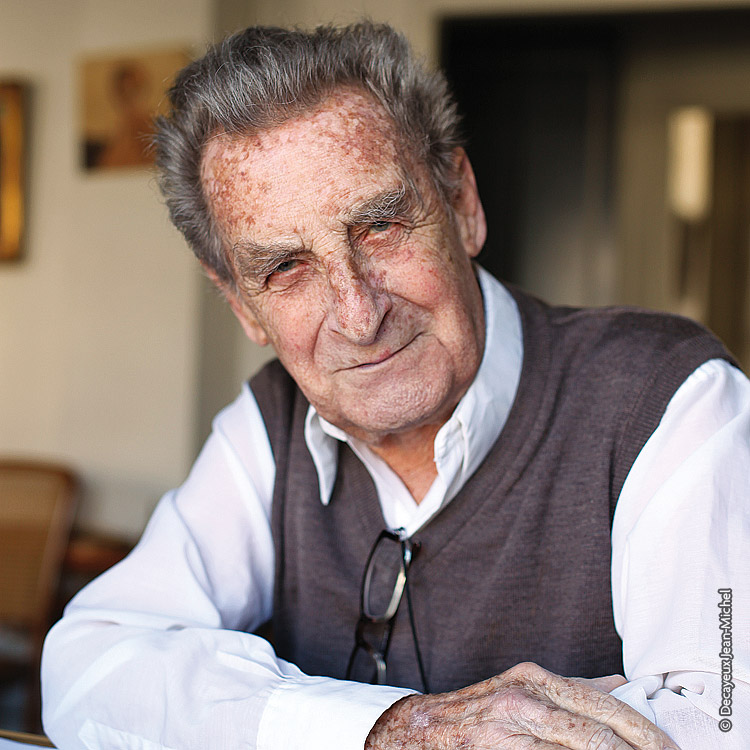 Jean Lacourture
Jean Lacourture
I read the two volumes of this biography in the 1990s when Kate gave it to me, and this is a second reading. I will read the second volume soon.
Lee Lee Nam’s Digital Art at the Korean Cultural Centre, Elizabeth Street, Recommended viewing for the jaded eye.
While on a round of errands in the city yesterday I made a point of going to the Korean Cultural Office on Elizabeth Street. Earlier I had read John McDonald’s review of an exhibit there, and I regard Honest John as a very reliable cicerone in matters of art. In addition, I have happy memories of the semester I spent at Korea University in Seoul. Finallly, I had walked by the KCO office a time ago on the way to meet some comrades for lunch at the Greek Club nearby. The conjunction of these stars led my steps, along with Google Maps, to the exhibition of Lee Lee Nam’s digital art.
While John’s review whet my appetite, it did not quite prepare me for the reality. In a surprising large space, darkened, I was alone with the works projected on Ultra High Definition screens; thank you, Samsung. Lee Lee Nam has taken traditional Korean, and a couple of European, images and recast them as video.
The result is delightful, captivating, and amusing. I took some video with the iPhone to show Katester who was otherwise engaged while I disported. The effect is to breath a great deal of life into those spare ink paintings that are otherwise, truth to be told, lifeless and repetitive. None of the images on the official web site do the work justice.

Imagine the aubergine stalks swaying gently in the breeze as the butterflies float by while the grasshoppers hop now and then, and you have it.
For more information cut-and-paste this link into the browser.
http://www.koreanculture.org.au/LeeLeeNamDigital
P.S. I do not post my video for fear of the Copyright Storm Troopers who patrol these blogs.
Max Allan Collins, Blood and Thunder (2011)
Baton Rouge, 1935. More Huey Long. And when he fades from the scene the lightbulb dims considerably.
When I read Wiliam Hair’s biography of Huey, reviewed elsewhere on this blog, I came across other titles related to Huey including this work of fiction. The premiss is that Huey, well aware of the Neanderthal character of many around him, and venality of others, wanted an outsider he can trust next to him. This is Nathan Heller, Chicago P.I. whom Huey earlier met on tour. The money takes Nathan to NOLA where he discovers it is NOT the Big Easy.
Collins does a good job in bringing to life an array of distinctive characters, of course, most of all Huey P. Long at the height of his ambitions and national acclaim with eyes firmly set on the 1940 presidential election. Note that year, 1935; it is the year Huey was murdered. When that happens about halfway through the novel, the energy on the page dissipates.
The first half is a ride on the Huey Long circus, as one of the bit players terms it, and the second half is Nate Heller’s succession of interviews with witnesses and retainers, which are in comparison lifeless, repetitive, and — sin for a krimie writer — boring.
By the way, there is a lot to like about the Huey shown here. His energy. His wit. His absolute rejection of anti-semitism. His spurning of the appurtenances of fascism. There is also a lot to dislike, to be sure. Domineering. Crude. Tyrannical. Careless.
There has never been a satisfactory explanation of what happened when Long was murdered, still less why it happened. The hangers-on were quick to bury him and blame the lone assassin, Dr Weiss. END OF STORY. No Warren Commission here to air everything twice over and give the conspiracy theorists fuel. But then they spontaneously combust without need of fuel. The speculation has since been continuous. Something of the range is indicated in this list.
1.Sic semper tyrannis. Dr Weiss was a public spirited citizen who had had enough.
2.Weiss had a personal motive because his father-in-law was about to be made victim by Long,
3.Weiss had a personal motive because Long was about smear the whole family with the greatest Southern curse, Negro blood somewhere up the family tree.
4.Weiss had a personal motive because Long had violated Weiss’s wife.
5.Weiss missed when he shot but the fusillade fired by Long’s simian bodyguards hit and killed Huey either directly or by ricochet.
6.There was a second gunman in the crowd who took advantage of the ruckus that Weiss made when he confronted Long to kill Huey. See (2)-(4) above.
7.Huey had crossed organised crime once too often, in his quest to finance a national campaign, and he was hit.
8.Huey had infuriated Standard Oil once too often and it acted.
The list goes on. Most accept Weiss as the agent, if not firing the fatal bullet. What Aristotle called the ‘proximate cause; but not necessarily the ‘final cause.’ (Now I know why I wrote that paper on Aristotle’s Four Causes in graduate school!)
Collins’s imagination puts a new spin on this well trodden list. Hooray!
SPOILER ALERT. Despite Long’s ambitions, there were those about him who supposed he would never make it to the White House in D.C. and his ambitions for it were undermining the flow of graft in Louisiana. The Long Machine, now well established, would work better without Long. Ergo, one of his closest, and most venal, lieutenants did it to take over the Machine and keep it focussed on graft, not on an empty national, political ambition.
This is one of a long series of krimies featuring Nathan Heller. I will read more in due course.
It is well researched to be sure, but I still wondered if car radios were as common in 1935 as implied in the text, and I wondered how one went about renting a car in New Orleans in that year.
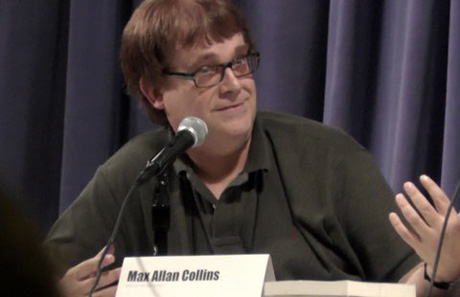
Collins lives in Muscatine, Iowa as the back notes proudly proclaim. Take that Bill ‘Cheap-Shot’ Bryson. Muscatine is near Davenport on the Father of Waters for those who know Iowa. Collins must be chained to a keyboard there, given the long list of titles on Amazon.
Judah Benjamin: the Jewish Confederate (1988) by Eli Evans
Reading about Jefferson Davis earlier reminded me of his alter ego in the Confederate cabinet, Judah Benjamin, and then a correspondent told me that one of Benjamin’s textbooks from his post war career in the 1880s is still on law school curricula, a fact that I verified easily. In an idle moment – half-time in a Niners game – I looked for a biography and this is the one I found. Published by Free Press, I took that as a mark of quality and acquired it. It is an excellent study with some surprises in it.
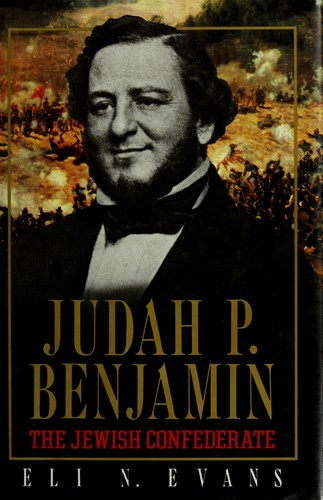
What made Benjamin notable in the lackluster Richmond government was first and foremost that he lasted the course of the war and no else did, apart from President Davis himself. As I discovered from reading Allan Tate’s biography of the irascible Davis, Benjamin was one of the very few who somehow got along with that moody, dyspeptic, volatile, and intemperate man. Evans suggests that Benjamin tried all his life to fit in without assimilating or converting to Christianity, though his Judaism was nominal.
Here then was a man who made a lasting contribution to legal knowledge, held very important national executive positions in cabinet for four years, and alone managed to work closely with his president. All in all a singular set of credentials.
Note, the only other person who managed to get along smoothly with Davis was Robert E. Lee, but they seldom met face-to-face, whereas Benjamin saw Davis virtually every day, and of course Lee had his military achievements as a buffer.
First, Benjamin’s background. His family were Sephardic Jews who originated in Portugal and then fled the Inquisition to England. His parents migrated to Charleston in South Carolina (which I visited last year) where Judah was born and grew up. Charleston was a major seaport then and had a sizable Jewish community. His parents were not devout and neither was he, but no one ever let him forget that he was Jewish. It was often thrown in his face, and, if not, then muttered behind his back throughout his life.
Like so many others, when he was of age, he went west, to New Orleans (NOLA) in the 1820s.
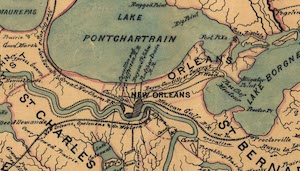
Louisiana had only just become a state. He apprenticed in law and made ends met by tutoring in English while himself learning Creole French. Then as always he had a prodigious appetite for work, and brought to it an organized and systematic mind. He made a tidy sum in NOLA by compiling a guide to the Code Napoléon that formed the basis of the Louisiana law.
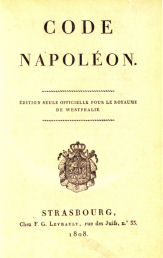
It is a complex framework that he distilled, valuable to any law office, but the more so for other English speakers moving to Louisiana and encountering the Code for the first time. In this he demonstrated his eye for the niche where he could do well by doing good à la Ben Franklin.
He married a Creole woman who led him a merry chase for years before and during their marriage. Vexed as that was, it was thanks to her that he travelled to England and France, as well as Spain and Italy. For most of their marriage, she lived in Paris which he visited one month a year. To finance these trips he undertook commercial work in England and France that gave him knowledge and contacts that were an asset later.
In the 1840s the American political party system was fracturing as the old compromises wore thin and the great compromisers (Daniel Webster, Henry Clay, John Calhoun, who preferred compromise to war) passed from the scene and firebrand intractables who preferred war to compromise came to the fore in the North and the South. His legal accomplishments recommended him to NOLA Whigs who got him elected to the state assembly. His appetite for work (and lack of the distractions of a home life) made him their candidate for a Senate seat in Washington D.C. which he won. He lived for a while in Decatur House which stands today. As the Whigs dissolved he changed allegiance to the Democrats.
To step back, just before he ran for the Senate, in the last days of the Millard Fillmore Administration, President Fillmore had to appoint a Southern to the Supreme Court (regional balance then as now was honored) and he offered it to Benjamin. He declined. It was almost hundred more years before a Jew was appointed to the Supreme Court. Class, can you say who that was? Yes, that is right Woodrow Wilson had his beau geste and appointed Louis Brandeis of the Brandeis Brief who was not only a Jew but an innovator!
In the United States Senate Benjamin defended states’ rights but not directly slavery. He became a slave holder when he married and set up house in Louisiana with his errant wife, but had not grown up in a slave holding family. His legal mind, command of precedents, great memory for the dumb things others said, these combined with an assured posture and deep voice earned him a reputation as an orator in the well of the Senate. The important point is that he was a moderate, not a Fire Eater who proclaimed slavery or death like Henry Foote or Thomas Yancey.
When secession started and Davis composed his first cabinet he wanted a geographic spread and he knew Benjamin from the Senate. He offered Benjamin the post of Attorney-General, which he took. At the time it was supposed there was hardly any need for an Attorney-General so his appointment was accepted though his Judaism drew comment in the newspaper.
 Benjamin on the Confederate $2 note as Attorney-General.
Benjamin on the Confederate $2 note as Attorney-General.
In the first cabinet meeting in February 1961 he made the only strategic suggestion that comatose body ever conceived. He proposed that the Confederate States government acquire (by purchase or requisition) a million bales of cotton and immediately transport them to England and warehouse them there as surety against future purchases of arms and ships. The proposition died on this lips. What did this short, rotund, Jew who had never served in the army know of war. It would be over the three months. Davis dismissed the proposal in very few words and patted Benjamin on the arm in a typically patronizing way.
That incident aside, Benjamin who had long studied those around him in court to assess the best tactics to use studied Davis, and found ways to make himself indispensable to the cantankerous and thin-skinned Davis.
Whereas the others members of cabinet put as much distance between themselves and Davis as possible, Benjamin took an office next door and socially paid court to Mrs. Varina Davis. He sent her theatre tickets, offered to do things for her children and so on. She soon offered him another point of access to Davis. In the office Benjamin became something like a chief-of-staff who handled the routine, acted as a gatekeeper for those who wanted to see the President, and drafted everything that needed to be written. In a few weeks Davis could not do without him.
When the victory at Manassas was not exploited the incumbent Secretary of War in the Confederate cabinet resigned in a huff and retired to Florida. Since Davis fancied himself a master strategist what he wanted in the War Department, such as it was, was an instrument who would do his bidding. Who better than Benjamin for whom no job was too small or too big. In June 1861 he was appointed Secretary of War, he of no military experience whatever, who had never fired a gun. He did not hunt, duel or any of those like manly arts so common among Southern gentlemen. However, he was a hard working administrator with an eye for detail and a willingness to work with others, qualities rare in Richmond.
By the way, Evans argues that Richmond would have been the primary target of the war with or without the Confederate government in residence because it possessed the only ironworks sufficient to forge heavy weapons, cannons and shells, in the Tredegar Iron Works.
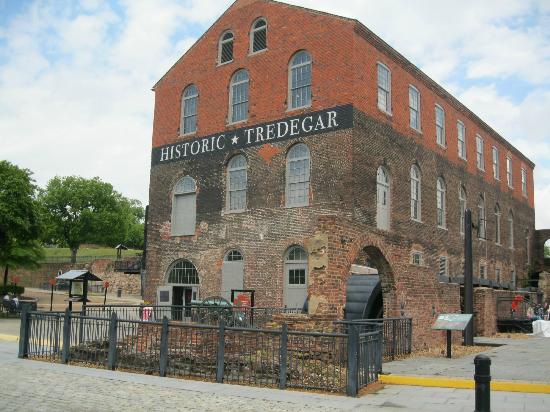 The Tredegar Works today.
The Tredegar Works today.
In fact, he argues the decision to move the government there had the effect, and perhaps that was the intention, of shielding these iron works with a great army. A point I had never before heard.
The Union anaconda strategy worked and NOLA fell early in the war cutting Benjamin off from his sisters there and his considerable property was confiscated by the Union army. He now was completely isolated in that sense, and Evans suggests that drove him to work even harder for Davis. If Benjamin lost office he could not retire to his home as others who left cabinet had done. His future, if future he had, was now in Richmond.
The winds of war blew more defeats and Benjamin was blamed for them. Evans produces a fascinating correspondence in one instance. Benjamin tells Davis he did not re-supply the Army of Northern Virginia after Antietam because there were no supplies left, no shot, no shell, no horses, no mules, no cannons, no rockets, no men in reserve, no corn, no feed, no salt pork, no nothing and not a gold dollar to buy it. But rather than admit that and (1) undermine civilian and military morale and (2) discourage potential European allies and investors that he would take the blame. Davis agreed to let him be the scapegoat in the newspapers and gossip, which went ballistic in the blame game. Watch the ABC news tonight for an example.
Yet Davis quickly moved to promote him to Secretary of State in late 1862, a post he held to the end in May 1865. Of course the pundits were outraged, Benjamin the Jewish fiend who had no doubt profited from stealing army supplies was rewarded for his perfidy with promotion! That from the Richmond press. But the Confederate Senate approved the appointment because its members knew how indispensable Benjamin was to Davis, even if they did not know about the lack of supplies.
Now Benjamin had a job for his talents. He spoke French and had done commercial law work in England and in France in his travels to his wife who was a favorite at the court of Louis Napoléon. He had many legal and social contacts in both countries. Davis and many others Southerns hoped that England and France would intervene in the war in some way. There is no doubt that it was a tempting proposition. To England it offered the chance to emasculate a commercial rival in New England and perhaps reclaim territory lost in the Revolutionary War. To France it offered the prospect of a Confederate ally to realise Louis Napoléon ambition of colonizing Mexico.
What Benjamin quickly realized that rather than risk a confrontation with the United States, what suited both England and France was to see the Americans in a deadlock. That would serve the purposes of both. England could trade and France could enter Mexico with no reaction from El Norte.
Benjamin went on the offensive. He arranged for Confederate sympathisers to go on public relations tours in both England and France. He paid unscrupulous journalists in those countries to write favorable articles and so on. He directed Confederate ambassadors in each country to offer inducement (bribes) to officials to draw their countries into the conflict.
Given the Union’s naval blockade, making these arrangement was difficult but he found paths through Mexico and Canada, though a letter might take three months to get from Richmond to Paris or London. And many letters did not make it. As a precaution against interception many of his official dispatches were coded and disguised as personal letters from a woman in Canada to a cousin in France, or a businessman in Mexico to a bank in England. In addition, he funded agents in Canada to foment trouble on the border with the United States. He also tried to organize support, financial and recruits, for the Peace and anti-conscription movements in the North, the Copperheads. One example in Vermont features in Howard Mosher’s delightful novel ‘On Kingdom Mountain’ (2008).
In short, he tried everything.
These confections, however ingenious, could not outweigh the realities of blood and iron. The Europeans would let the battlefield decide the matter.
As the military situation produced shortages. the scapegoating of all Jews, but particularly the most visible one, increased in the South. Jews were accused of hoarding commodities, when in reality they had nothing either, he least of all. When a French banker made his way through Mexico to Richmond to negotiate for cotton, he and Benjamin spoke French. Though the resulting contract was very favorable to the Southern cotton interests, it was not enough! The press, the Congress, the know-it-alls, society ladies, men in the ranks all denounced Benjamin for selling out the Confederacy in some invisible way. Why else would a Jew speak French to a monolingual Frenchman but to conspire?
This reasoning is not more stupid than we hear today from many quarters. Nothing is ever enough. The only explanation of a shortfall is personal malfeasance. Sounds like Pox News! Simple minded and loud. Or is that the ABC these days?
The more Benjamin was pilloried, the more he took the only refuge he had, namely Richmond’s small Jewish community. But seen in the company of other Jews only intensified the hostility that good Christians directed at him.
None of this carping influenced President Davis, who was nothing if not stubborn. That stubbornness together with his poor health, he was often bedridden for days and weeks at a time, meant he relied ever more Benjamin who together with Varina tried to conceal Davis’ weakness, least the Confederate Congress start thinking about a new president. Poor health or not Davis made it to 83.
Yes, Class, there was a Vice-President, that tubercular Georgia pygmy Alexander Stephens, who fell out with Davis in Montgomery in 1861 and retired to his home in Atlanta where he stayed until General Sherman came calling. Few people could cope with Davis.
When Davis was laid low by one of his many complaints or was travelling, which he did a couple of times, Benjamin was Acting President in all but name. He called cabinet meetings, he issued directives, replied to letters addressed to Davis and so on. He reported all this to Davis after the fact, and Davis seems to have accepted it. Benjamin often did this work in concert with Varina whose advice he sought and heeded, unlike her husband.
After Gettysburg in July 1863 Benjamin began thinking about a Confederate emancipation of slaves in return for military service (shades of Robert Heinlein’s ‘Starship Troopers’), but he dared not broach the subject with anyone but Varina. Others also realized the dire need for manpower in the army and in 1864 some generals also said the unmentionable, notably Patrick Cleburne, whose reputation as a stalwart soldier was unimpeachable.
Benjamin maneuvered for months to allow Davis to make this bold move and Benjamin enlisted Varina to help persuade Davis, step-by-step, but to no avail. The details are many and best read in book. The larger point is that Benjamin was willing to give up slavery and tried to bring that about, but failed.
A recurrent theme in any book about the Civil War is the Southern dream that somehow it would prevail despite the material odds that favoured the North three or four to one. I tried to pick apart some of reasoning in this list, which is a rough chronology of the progress of the War.
1. Their cause was just and God would see to it, i.e., states’ rights and the white man’s burden of slavery.
2. After the Southern victory at Manassas: They would outfight the Northern city slickers.
3. This dream endured for most of the war: King Cotton was essential to Europe and England would intervene to get it.
4. This, too, surfaced periodically: the English desire to trim commercial rival in New England.
5. In 1863 when Louis Napoléon began interfering in Mexican affairs: French ambitions in Mexico would bring it into the war.
6. Benjamin tried this angle from later 1863: Entice French and English investments which they would then protect.
7. A widely held hope from February 1864: War weariness in the North, Peace Party, anti-conscription riots would change policy and the president.
8. Bruited in 1864 after Lincoln’s re-election. The South would emancipate the slaves and level the moral playing field which would influence European and Northern opinion, the former to intervene and the latter to stop fighting.
9. In March 1865: The Confederacy would recruit soldiers from the slaves with the promise of freedom.
Each of these straws was grasped at one time or another and none bore the weight. England turned to Egypt and India for cotton. Foolish as Louis Napoléon was, he would not act without England.
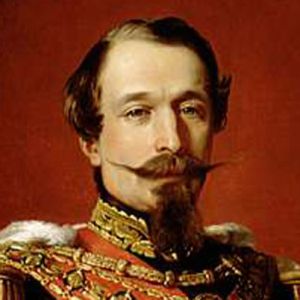 Louis Napoléon, looking as drug-addled as a celebrity today.
Louis Napoléon, looking as drug-addled as a celebrity today.
He would interfere in Mexico but nothing more. Lincoln won re-election on the Federal army votes. No Southern official would publicly support emancipation, except Benjamin himself. Yes, the Confederate army did accept blacks volunteered to it by their owners to be soldiers in March 1865 but there were only two hundred who were never armed.
The end came in April 1865 and Benjamin fled. The assassination of Lincoln made him a Christ-figure and did not Jews kill Christ. What was Benjamin but a Jew. Worse, some of the agents he had employed were related to one of those implicated in the assassination. That thread would have sufficed to see Benjamin hanged. The yellow Pox press in the North made this connection within days of Lincoln’s death. Lincoln was murdered by a plot hatched by the scheming Jew Benjamin! If it needs to be said, neither Benjamin nor any other Confederate official had any part in the murder of Lincoln.
Benjamin escaped it to England and started a third, or is it a fourth career: Code Napoléon lawyer in New Orleans, United States Senator in Washington D.C., and then Secretary of State of the Confederate States. In England he became a barrister and then a Queen’s counsel. As in Louisiana he found a niche for himself by compiling and publishing in 1868 ‘A Treatise on the Law of Sale of Personal Property, With Reference to the American Decisions, to the French Code, and Civil Law’, which had its most recent edition in 2010 and is still be found in the curriculum of commercial law.
The 2010 edition.
He spent the last years of his life in Liverpool in commercial law, travelling regularly to Paris to see his wife.
The portraits of Benjamin, as those above, invariably show a faint smile on his lips. Even when the Confederate cabinet was in flight, made all the more desperate by the assassination of President Lincoln, Benjamin had that smile. He had frequently been asked why he smiled all the time over the years. His repeated answer was ‘que sera, que sera’ and meanwhile enjoy the moment.
The book is partly a parallel biography of Jefferson Davis in the opening chapters. I had not expected that from the title and even in retrospect I am not sure it was necessary, though it did reveal to me more of Davis than the Allan Tate biography reviewed earlier. The justification for this emphasis is the close association between the two men for the four years of the Confederate States government. But that is only four years of Benjamin’s seventy-three (73) years. Of course it was these years that led me to read about him.
It is the work of a professional historian, well written and thoroughly researched. It does emphasize the Jewish heritage as indicated in the title. While the Judaism does not seem central to Benjamin’s life it was the inescapable first perception of all he met.
Eleanor Roosevelt: A Personal and Public Life (2006) by J. William T. Youngs
That remarkable woman Eleanor Roosevelt (1884 – 1962) lived in the White House for more than twelve (12) years, and she made full use of the opportunities it offered her, unlike most of the others. Eleanor was content with neither rose gardens nor chiding the victims as other First Ladies have been. Indeed, she might be the only one who deserves that title – First Lady. I class this as Presidential reading.
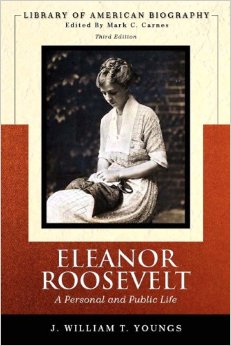
Privately, Franklin called her ‘Public Energy Number One,’ for her readiness to take up any good cause. The press frequently referred to her as ‘Eleanor Everywhere,’ for the whirlwind of activity she was. Not only did she take up causes but she went where they were to see for herself. Of course, it would have been a different story without Franklin, but as we shall see, she contributed a great deal to his achievements, too.
This is a biography, though to this reader somewhat uneven in its execution. On that more later. For now the main game: Eleanor was the daughter of Elliot Roosevelt, a brother of Teddy Roosevelt and Anna Hall Livingston, whose great great grandfather administered the oath of office to the first President of the United States, George Washington. Both sides of the family were well off but not among the astronomically rich Astors, Morgans, Hills, Gettys, and Rockefellers. She was a fifth cousin once removed of Franklin, though I do not quite know what that means. That name Roosevelt is from the Dutch who settled along the Hudson River Valley before the English pushed the Netherlands out.
She grew up comfortable in the small world of the Gilded Age, think of the novels of those superlative chroniclers of that time, place, and class, Edith Wharton and Henry James.
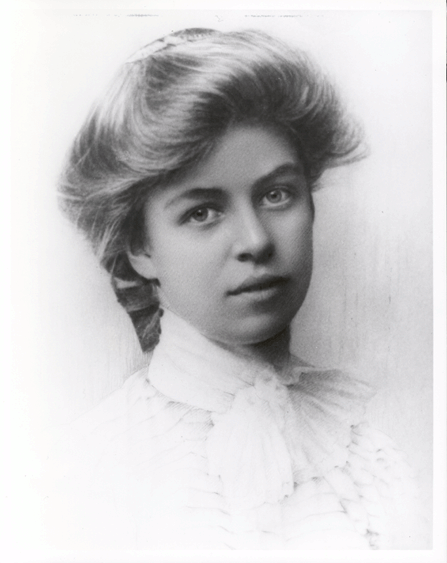 Eleanor in her late teens.
Eleanor in her late teens.
Her mother was very religious and her father an alcoholic wastrel. Because he was mostly absent the young Eleanor idealized her father while receiving little affection from her mother who was too busy praying. She had two brothers, one who died in infancy and another who followed in his father’s footsteps. Her mother died of diphtheria when Eleanor was but six years old and her father drank himself to death three years later. Eleanor was placed with grandparents along with her surviving brother in a large household where she was the last and least. Note that when she married Franklin, the sitting President, Teddy Roosevelt acted as the father of the bride.
In both her paternal home and in the grandparents’ home, the servants all spoke French. That was evidently was the done thing at the time. The servants looked after the children and so Eleanor grew up bilingual and from that derived a lifelong interest in languages. In her teens the family sent her to a finishing school in England for four years. This school emphasized art and culture, and was conducted completely in French. Eleanor excelled there. She travelled to France, Italy, Spain, and Germany on school field trips. When she and Franklin travelled Europe on a long honeymoon she showed him around and he relished her knowledge and appreciation of fine art and history.
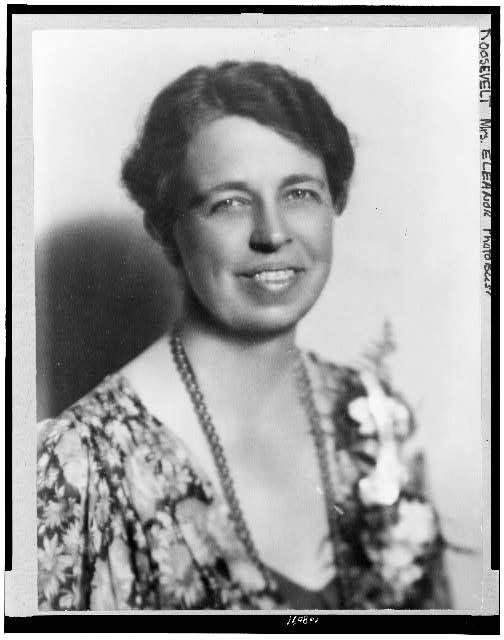 Eleanor the Washington hostess.
Eleanor the Washington hostess.
Franklin advocated female sufferage in his first campaign for the state senate. This surprised Eleanor and she accepted the idea out of loyalty and duty as a wife. She also, in those early days, practiced the snobberey, anti-semtism, and racism of her social origins, whereas Franklin did not. Again she followed him out of duty. Of course, later she surpassed him on these counts but he led the way at the start. One of the very affecting features of this book is the unfolding of Eleanor’s moral growth.
During World War I and after it was Franklin who insisted they visited wounded, injured, and dying sailors in hospital, he being Assistant Secretary of the Navy, but once there, it was Eleanor who stole the show. Even in those days of her callow youth, one observer said that she somehow transmitted good will to the men she touched and spoke to. Franklin had the wit to step back and let the small miracles happen. The observer by the way is that man whose name is forever linked with FDR, Louie Howe. Though she first despised Louie for many wrong reasons, he was working class and its showed and for a time she thought him Jewish, but in time they established a lasting rapport.
Franklin was inspired by Teddy Roosevelt and the state senate was a start. Two years later he ran for governor touting female suffrage, war on Tammany Hall, and urban renewal. To remind readers of the time and place, Franklin drove a motor car in the campaign, and he was the first to do that in New York state. He won and off they went to Albany.
The burdens on Eleanor were both the usual ones for a wife at the time and unusual ones, too. She five children in rapid succession and in this account was not a particularly loving mother. Moreover, there were the duties of a political wife. Staying awake through the speeches, attending every function, entertaining guests at home four or five nights a week, and Franklin brought home all sorts, from factory foremen, to Supreme Court judges, Jews, socialists, bankers, journalists, and all. He is only a supporting player in this book, but he seems entirely free of the prejudices of his background, all the more surprising since his mother was an exemplar of every prejudice going, and he and she were inextricable.
Eleanor learned to manage the demands, and indeed, did it so well that in time other political wives asked her advice on how to cope with children, absent husband, unexpected guests, numbing after dinner speeches, handshaking and handshaking and handshaking. When Franklin went to the Navy Department in Washington her linguistic and cultural assets came into their own. Here Franklin was more likely to bring home an Italian diplomat or a French banker, than a Jewish garment worker or an Irish radical, and the multilingual Eleanor (French, Italian, and some German) was always a hit.
In addition to all the above, Franklin more or less pushed her out the door to create a public profile, starting with the Junior League to teach reading in New York City slums and then the League of Women Voters to educate women to vote as they saw fit not as their husbands did. Ouch! But once she got a toe in those waters she found them to her liking.
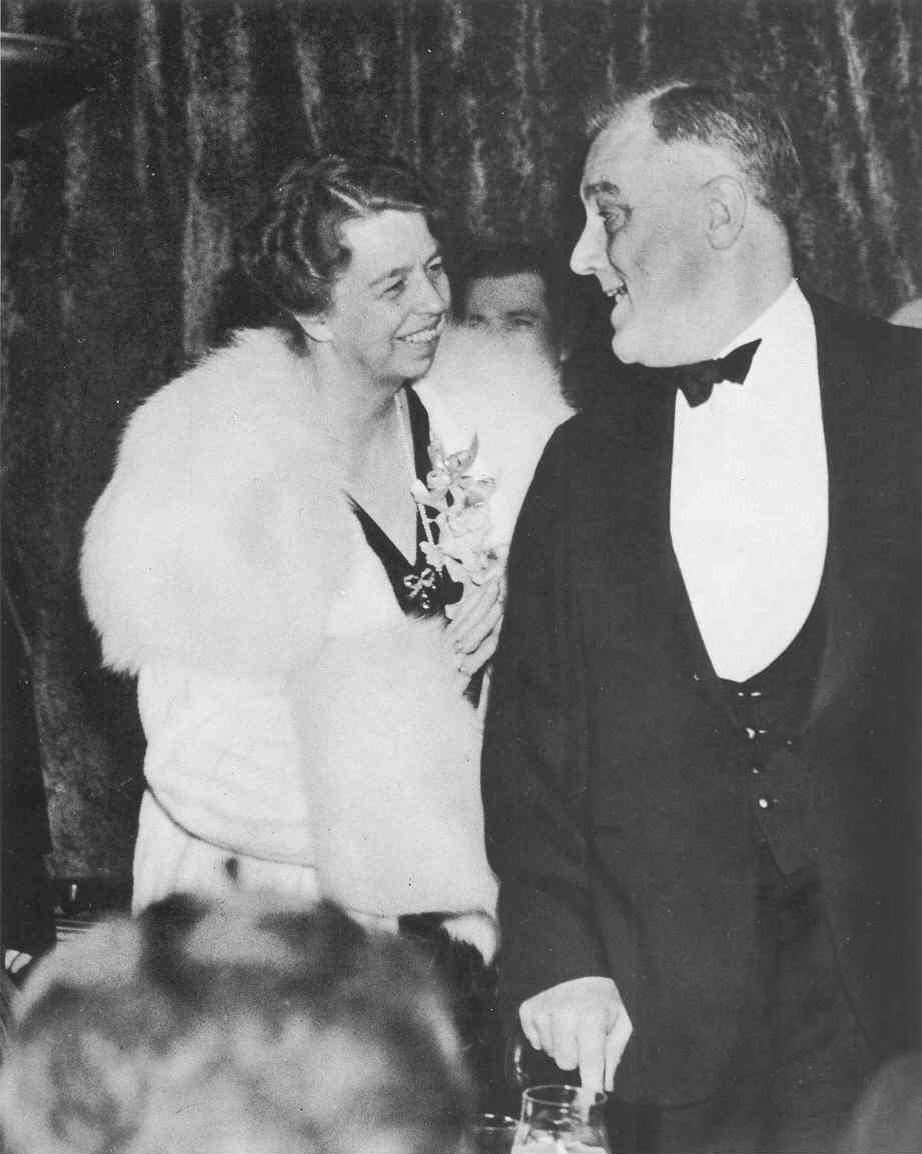 The two of them in 1936
The two of them in 1936
Then, at 39, that active sportsman Franklin Roosevelt lost the use of his legs, literally overnight. There were long bouts of painful therapy. Ever more responsibilities fell to Eleanor, first in caring for Franklin, and most importantly keeping his spirits up, which she did by challenging him, e.g., walk down the drive way – that took him three years of trying to achieve it, wearing twenty pounds of braces, swinging his dead legs from the hips. She is credited with driving him to run for Governor. He did, and thanks largely to the support of Al Smith, he won.
Eleanor became, in addition to everything else, Franklin’s eyes and ears. She did the usual meet-and-greets, but also inspections of workhouses, asyla, prisons, school, hospitals. She took the inspecting seriously and found many deficiencies, all reported to Franklin. These reports led to changes and that emboldened her to work even harder. She continued doing this when Franklin was elected president. Indeed she clocked up 25,000 miles in the Pacific during World War II visiting the troops. One admiral said a visit from Eleanor was worth ten USO shows to lift morale. She made in Melbourne, Sydney, and Brisbane on this tour, as well as Pacific Islands being bombed by the Japanese. The descriptions of Eleanor in hospital wards, evacuation camps, and ship infirmaries full of wounded and dying men is powerful. Those experiences made her an early and loud advocate of the United Nations. By the way, all of the Roosevelt sons were in the armed forces at the time and came under fire. (Sidebar: Teddy Roosevelt’s son, Theodore Roosevelt III, a general, died on Omaha Beach on 6 June 1944. Not the cosseted presidential offspring we have seen of later.)
All the while she published a newspaper column every day, never missing a deadline, typing all the copy herself on a battered Smith-Corona. The pay she donated to a children’s home founded by her grandfather.
Needless to say all this good work infuriated the Tea Parodists of the day who were sure she was a Jew, a Negro, a Communist, an alien, and, worst of all, a woman …! The vitriol poured on her exceeds even that today poured onto Barry O’Bama. But some of the earliest Gallup Polls show her approval ratings consistently above 66%, sometimes ahead of Franklin on that crude index.
At the beginning Franklin led her political development, but later she led his on civil rights and the rights of dispossessed, and women.
When he died, she retired, too, briefly but soon enough she was invited to speak at fundraising events for charities, war bonds, civil rights, and then there was the United Nations’ Universal Declaration of Human Rights, which she alone made happen in two year – yes, two years – of committee meetings with the most intractable committee one can imagine (far beyond the Unbelievables of my experience). That is an impressive achievement. President Truman appointed her and the leader of US delegation gave her, what he thought was a pointless, trivial, and impossible job – the Declaration. No one remembers that leader any more, but everywhere today people speak of human rights, tracing back to Eleanor Roosevelt. Take that!
In 1961 President Kennedy made her chair of the first Commission on the Status of Women, an assignment she attacked as she always did: full tilt. Age wearied her and she died in 1962, an event I can remember.
There is much more to the story to be read in this or in one of the many other biographies, or in her own writings.
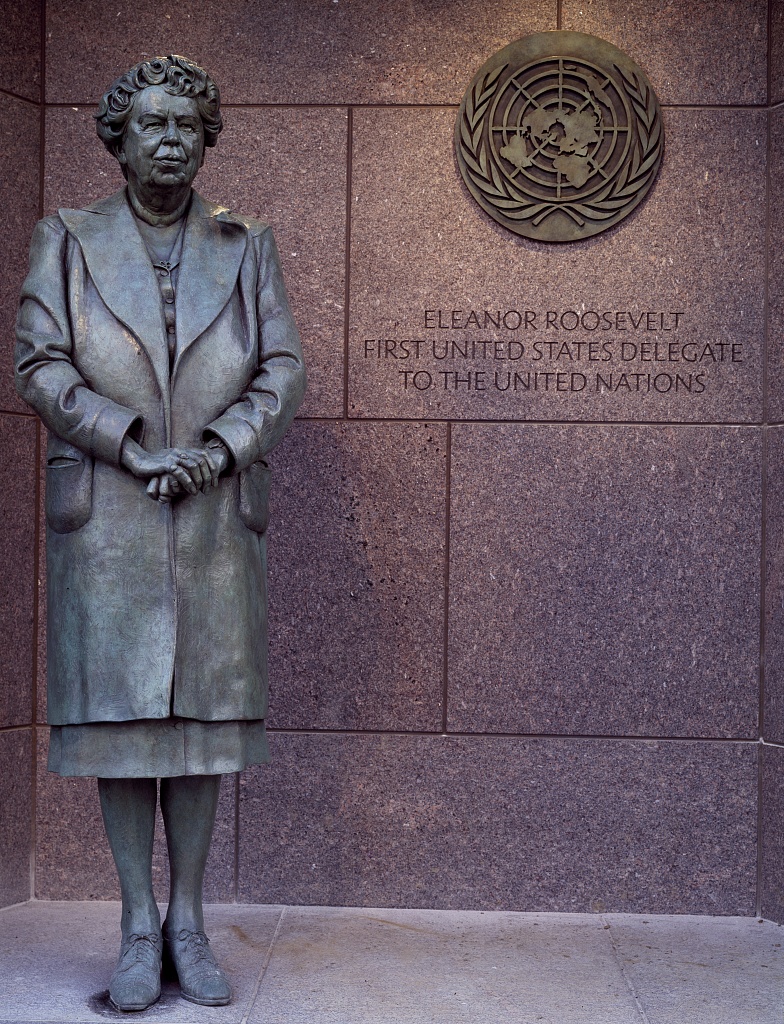 She alone of First Ladies has a statue in Washington, D.C. Take that Nancy Reagan.
She alone of First Ladies has a statue in Washington, D.C. Take that Nancy Reagan.
I said above that the book was ‘uneven’ because it lavishes page after page on the marriage ceremony of Eleanor’s parents and passes virtually in silence the births of her children. It invokes the Dolomites during her honeymoon with Franklin in lyrical passages and skips lightly over crucibles like the death of her brother in 1941. Yes, it does deal with the sexual relations with a laudable reticence and decency.
The future of Scotland foretold
In a series of novels between 1997 and 2001 that prolific Scots novelist Paul Johnston described an independent Scotland.
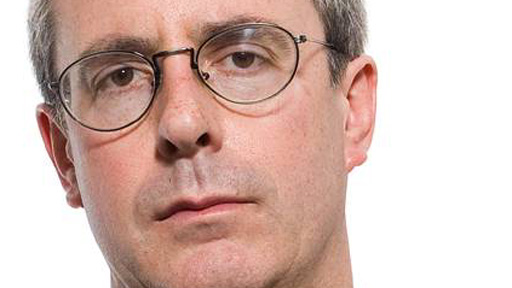 Paul Johnston
Paul Johnston
It is a grim picture he painted. The government in Edinburgh Castle has little influence over the hinterland. The highlands have become a wild and woolly place where few others dare to venture. The Hebrides have not been heard from in years. Whatever oil income there might be there is staying there. The European Union stopped admitting dole-seeking micro-states.
The result is a Scotland that lives off sex tourism for Arabs, Japanese, and Nigerians. Prostitution in a nationalized industry. And on it goes.
Edinburgh Castle is run by intellectuals who follow Plato’s concept of philosopher-kings.
They argue among themselves about the Divided Line and the metaphor of the Sun, leaving the nationalized industry to auxiliaries.
I have taken a few liberties in the summary above to apply it to current circumstances. The books are narrated by an auxiliary who got demoted. The first was:
‘The Body Politic’ (1997)
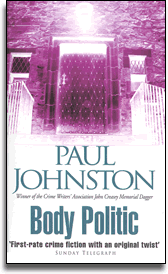
The others are:
‘The Bone Yard’ (1998)
‘The Water of Death’ (1999)
‘The Blood Tree’ (2000)
‘The House of Dust’ (2001)
I found them very amusing and they are recommended as krimies and as dystopias.
The Adventure of the Vice-Chancellor’s Garden
On a fine Saturday in a Sydney mid-winter I went to a public lecture at the University of Sydney in General Lecture Theatre One at 2 pm. This room is as steep as a ski jump and the grey audience, like me, took the steps slow and careful. Knowing the lecturer, I had something I wanted to give him, at the end of the talk, for another project. Accordingly I slowly made my way down to the front. All went well; there were no ominous portents.
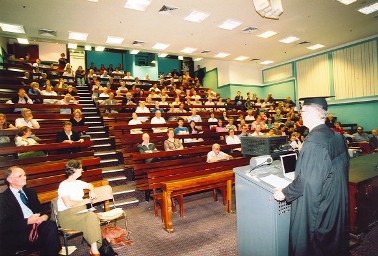 GLT
GLT
I have been to that room many times, and I knew that there was a back exit that avoided ascending all those steep steps. That was my advantage: local knowledge. As the talk drew to a close, I thought I would indeed take the back exit and miss those stairs with my arthritic knee. After a brief word with the lecturer, handing over the poster I had for him, and seeing the slow moving audience taking the stairs, I boldly pushed though the door marked exit at the back and then through a second door into the Vice-Chancellor’s garden, and just for a micro-second I hesitated, should I prop open the door just in case or push on. But if I propped it open, it would stay that way, and I did not want to be responsible for that. I may even have thought, without fully crystalizing it, that it was Saturday and not all doors might be open, but then there was a wedding party in the quadrangle when the lecture started, and the Nicholson Museum was open – I stopped in there to find the location of the lecture on the way there. In other words, everything is open for business. As I said, ‘boldly’ I proceeded, and the exit door slammed shut behind me.
The day was mild and I was in shirt sleeves, but it was July and when the sun goes down the temperature drops quickly from, say, 18C to 10C or less. The Vice-Chancellor’s garden is fully enclosed and gets little sun, as I entered it was already chilly. I hastened to the exit nearest to the mens toilet in the Quandranlge to relieve that need …. only to find it shut and locked. Ooops! Not too worry, I said to myself. I tried the other two doors. Same story. I went back to the door I had exited from the lecture room: Locked, and since it is well away from the lecture hall there was no point in knocking to gain attention. Stuck.

If the doors were locked today, they would stay locked on Sunday, and Monday was a public holiday and so the lockdown would most likely continue. At some point, my wife Kate would miss me and wonder just how long that lecture was. Even so she would not immediately conclude I had trapped myself in the Vice-Chancellor’s Garden, and conjure a key to release me. She was more likely to think in terms of hospitals or alien abductions.
I could break a window, and that might set off an alarm; the windows are all too high to give access to any but a determined thief more agile than I am.
Moreover, I had not brought my window-breaking tyre iron. If I waited for nature to take its course, it would be Tuesday morning when the doors open, about 72 hours to shiver and hunger, perhaps a fitting end, some would say, for me: hypothermia. After all those thoughts, it was time to act.
First things first. There are plenty of bushes in that garden, so I relieved the water pressure and took stock. Only one thing for it, really. I pulled the iPhone from my utility belt, well, just a plain pants’ pocket, and noticed the battery was only 30%, but surely enough for a call. First I used the web to find the University Security Service telephone number, and then I called it, and explained to a seasoned operator my predicament. (I inferred from his quick comprehension of the situation that it has happened before.)
The security operator said someone would be along as soon as possible. Hallelujah, I thought. The battery shrank after the internet use and the telephone call, but it was still only 45 minutes since the end of the lecture; Katie would not yet be wondering where I was. Security called me back twice to tell me someone was coming. My spirits soared. About one hour after the lecture ended, I heard the rattle of many keys and the shaking of a door. It drew me like magnet, and after some more rattling and shaking the door opened and there stood the angel of mercy, Doris, with a mighty big key ring, which she had fetched from the office.
I was effusive in my thanks. She concentrated on documenting the event for the records, putting my shame on file some where in Security.
Considerations of dignity made me hesitate to post this essay, but I decided to do so to thank the Security Service for getting me out.
I took no pictures during the confinement to save the iPhone battery. Web searching did not lead to any pictures portraying the Security Service of the University.
